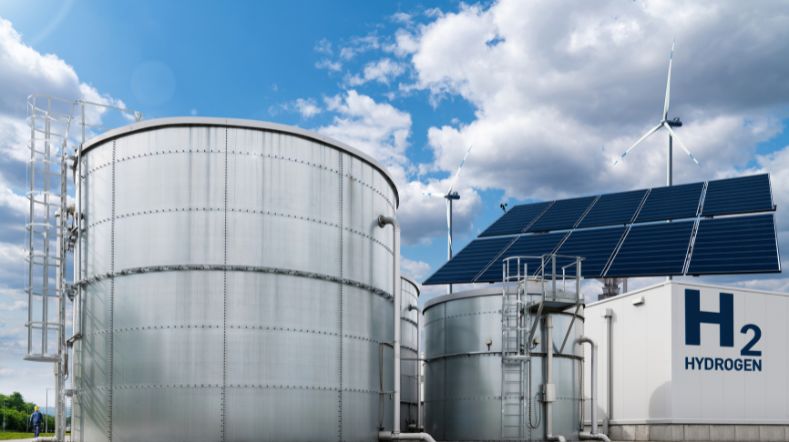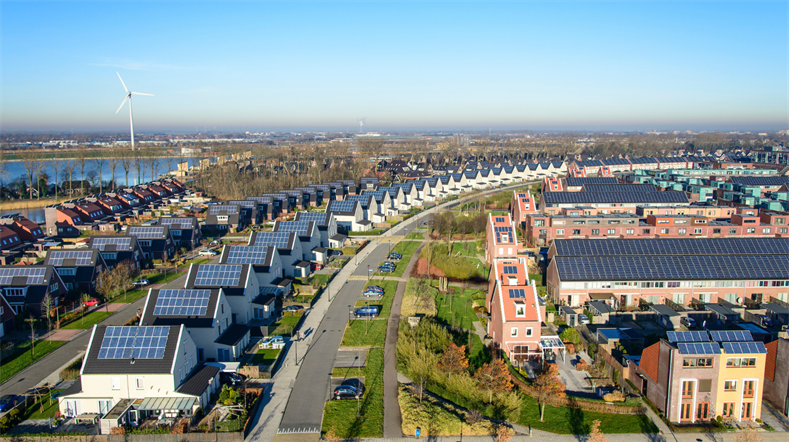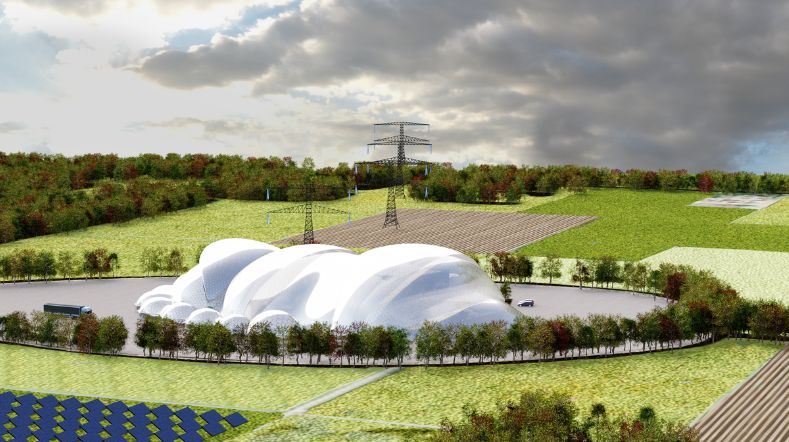
Energy transition growing cooperation between government and industry
Industry needs to go green more quickly. While it’s true that this sector has succeeded in significantly reducing its CO2 emissions between 1990 and 2020 with at least 25%, in absolute numbers those emissions still represent tens of megatons per year. In the Climate Agreement, government and industry have agreed to further reduce emissions. As an innovation and knowledge partner, TNO supports ministries, provinces, municipalities and regions in implementing effective policies. We also bring public and private parties together to implement acceleration: the radical greening of the value chains in industry.
Accelerating the transition process sustainable industry
‘The latter is particularly important’, says Jeroen de Jonge, TNO's Strategy & Policy Advisor. ‘Market parties need each other to become more sustainable, as well as the government, and vice versa. The government sets long-term and short-term policies, outlines frameworks and must ensure that the necessary infrastructure is in place. Green power is nice, but for industrial processes to run on electricity, the demand for power will increase enormously. Much more infrastructure will be needed to accommodate this increase in demand. Decision-making and construction will take many years. We are studying ways in which such transition processes can be accelerated. To this end, we provide so-called “TNO Green Prints” with clearly defined solutions for parties.’
"Market parties need each other to become more sustainable, as well as the government, and vice versa."
Seeing the whole energy picture
The electricity grid is already reaching its limits, yet demand will increase significantly until 2050 as shown in the TNO Scenario’s study. The Gasunie network must be adapted to transporting hydrogen, made using sustainably generated electricity, to the large industrial clusters in order to take major steps in the energy transition. This is quite an operation in terms of implementation, and the preceding licensing procedures reduce the desirable speed.
‘So you need vision and decisiveness from the government to speed things up. For this, the government must be able to provide answers to the many questions that exist. As an independent organisation, TNO is ideally placed to offer advice, because we have excellent relationships with all stakeholders and are positioned at the heart of all developments. We are aware of everyone's potential and limitations. With our energy experts, economists, behavioural scientists and other disciplines, we are able to see the whole picture. We have the knowledge of the technologies that help accelerate the transition, but we are also familiar with the social aspect. This is about a systemic transition with unprecedented implications, yet enormous opportunities for businesses to innovate. Just think of heavy industries making the gradual transition to hydrogen.’
"You need vision and decisiveness from the government to speed things up."
Energy transition and the interests of Dutch economy hand in hand
The business world is facing choices that carry far-reaching consequences. Major investment decisions are only taken when there is certainty about the required infrastructure. Industry can either avoid risks or, given CO2 pricing and other developments, invest more rapidly in a green future. In that situation, a clear governmental position is required.
Jeroen explains: ‘Here, energy transition and the interests of the Dutch economy must go hand in hand, making it all the more compelling for the government to invest heavily in this. It is not only about greening, it’s about new businesses, jobs and competitiveness. However, the playing field is currently changing so rapidly, partly due to geopolitical developments, that choices made already need to be changed or adjusted. Also, issues such as the shortage of skilled labour, nitrogen and the housing market further complicate matters. Ministries and municipalities will have to set priorities and make choices about what they will be focusing on in the coming years. Everything is important, but what must be prioritised?’
"Everything is important, but what must be prioritised?"
Working together in value chains
TNO advocates working together in new value chains. Jeroen de Jonge has also noticed a recent change in this respect. 'It is a very different way of working, and one which all parties need to adapt to. The traditional buyer-supplier relationship is turning upside down. In a chain where parties depend on each other, integrated thinking and acting is required. As an orchestrator of innovation, we bring parties together and help them add substance. This requires more openness between government and industry. A process that has now clearly started. We help both parties to create so-called collaborative business models to form new value chains.’ We have knowledge of the technologies that help accelerate the transition, but we also know the social side. This is a system transition with unprecedented consequences, but also great opportunities for business to innovate. Think of the gradual switch to hydrogen by heavy industries.
Widely supported policy
As an example, Jeroen mentions the Multi-Year Infrastructure for Energy and Climate programme [Meerjarenprogramma Infrastructuur Energie en Klimaat] (MIEK), in which the authorities and businesses involved make agreements about the future infrastructure for industry. This is about bringing all stakeholders together, making everyone's interests clear, and making sound agreements between ministries, grid operators, industry and other stakeholders.
"Companies are now more willing to allow government to take a look behind the scenes."
'As TNO, we have investigated how this initiative has worked so far, what risks parties face and how these can be avoided or mitigated. We interviewed many parties and made recommendations for speeding things up. It is very important to link industry's plans for transformation with those of the government for the future infrastructure, so that parties always connect at the right time. That provides security for both sides. We have noticed that companies are now more willing to allow government to take a look behind the scenes, and that the government's thinking is much more in tune with the industry. This cooperation has evolved and intensified, resulting in a widely supported policy.’
Do you want to know how TNO can help you to find your Green Print? Contact Jeroen de Jonge.
TNO Green Print
TNO launches The Green Print: A blueprint for a radical greening of your value chain in the industry sector. Customized: From calculation models that lead to new government policy to a specific CO2 capture solution for a chemical company. All available knowledge, experience and innovations are processed in a TNO Green Print into a specific solution. In this way you can contribute to the acceleration of a clean industry in 2050.
Get inspired
Path to sustainability: carbon removal in the Dutch energy system


Hydrogen in the energy system: The future of sustainable energy in the Netherlands and Europe


Preventing grid congestion: how smart devices can optimize electricity usage in the Netherlands


Small modular reactors in the Dutch energy system - Combined heat and power production in industry


Collaboration TNO and Elcogen for development Solid Oxide Electrification Technology in Europe




